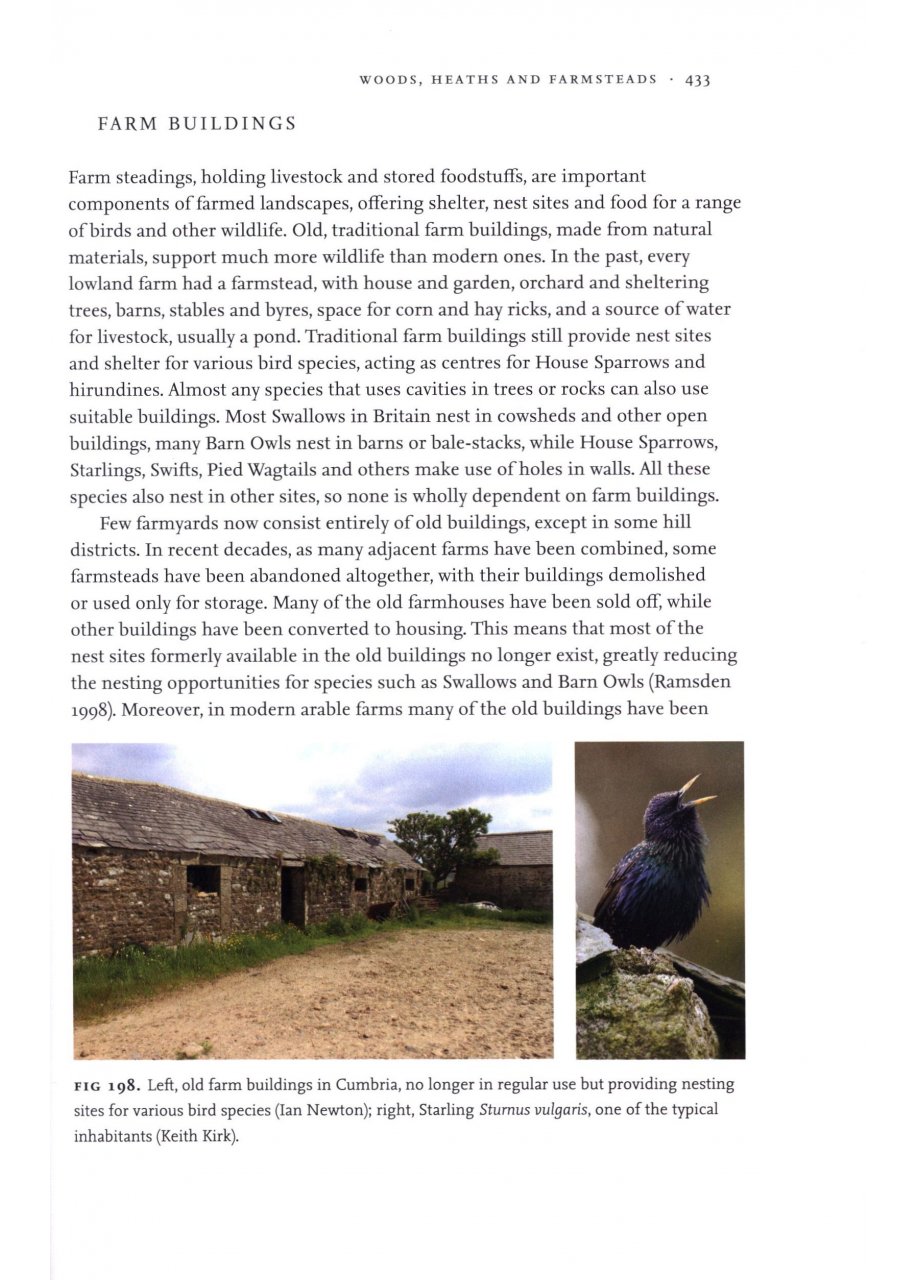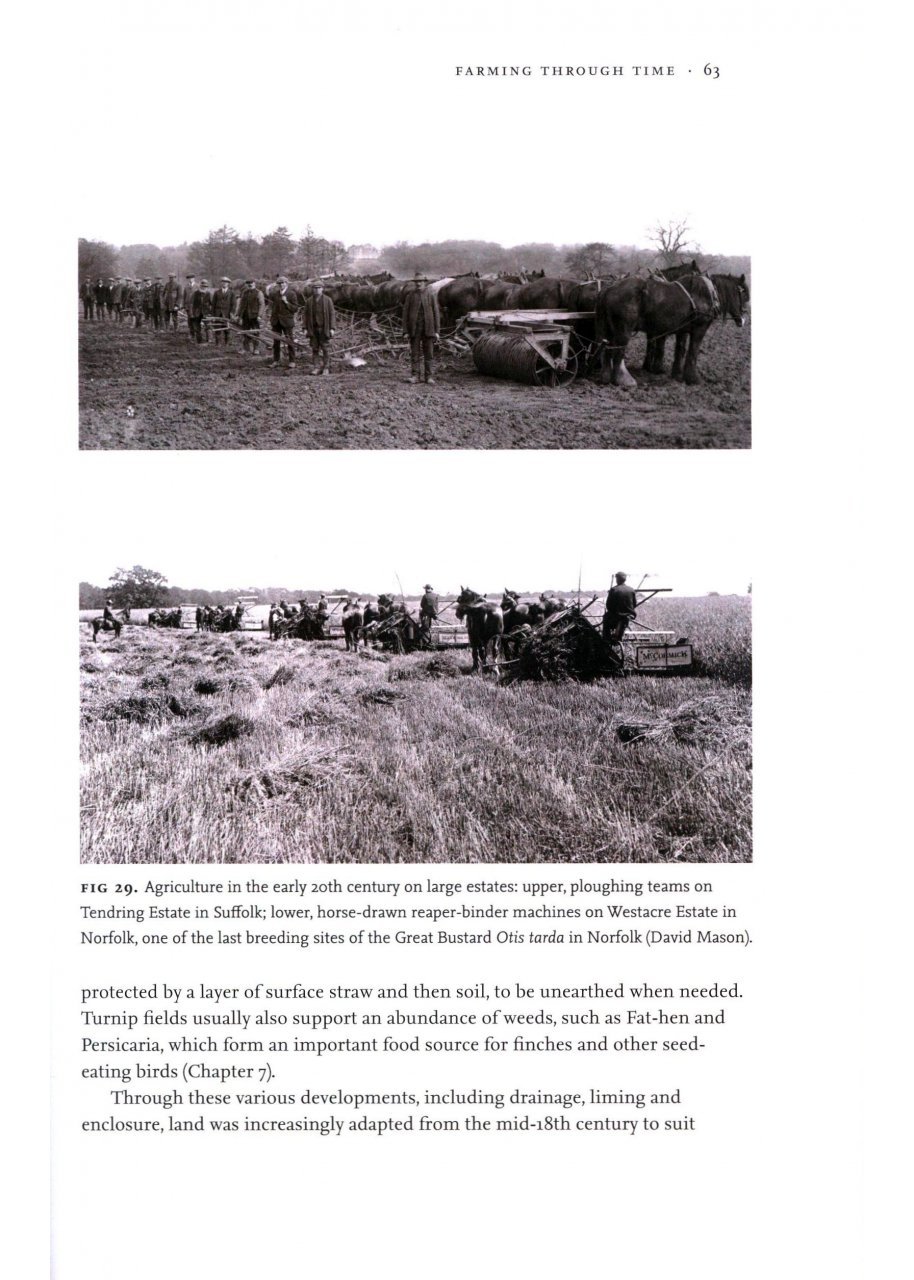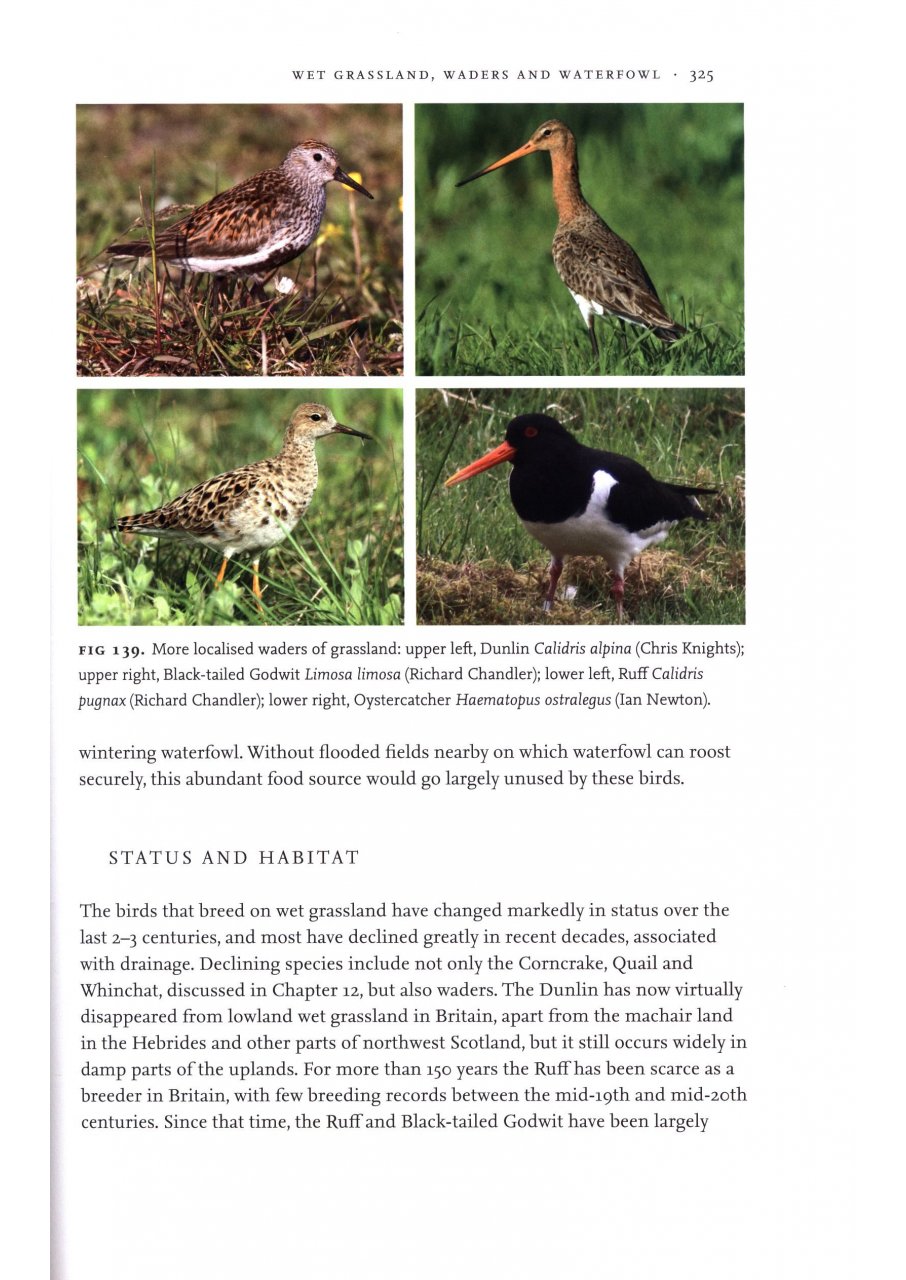Farming and Birds
- Farming and Birds by Ian Newton (Collins New Naturalist, London, 2017).
- 628 pages, 258 colour and black-and-white photos and colour illustrations.
- ISBN 9780008147907. Pbk, £35.
Britain is made supremely beautiful by its skyscapes, topography, villages, woodland and farmland. The intricate details of the last of these, including its buildings, hedgerows, tracks, crops and livestock, help enrich the landscapes that we all enjoy. Simplification and intensification of farming systems reduce this visual richness. But that is as nothing compared to the impoverishment of life that inhabits the 70 per cent of our land that is farmed.
This latest volume in Collins’ uniquely valuable New Naturalist series covers the changing relationships between people and the land, and wholesale changes in farming and wildlife, illustrated through the effects on birds in Britain and a thorough understanding of farming. It presents a deeply worrying picture, despite successes and improvements, although, as the author says from the start, it does not ‘blame’ farmers.
Given the complexities of farming support systems, market forces and the immense power of companies that produce both pesticides and seeds, and also provide almost the only available advice for farmers (usually ‘use our products or face catastrophe’), how can individual farmers be expected to do other than they do? Yet the scenario painted by Ian Newton is a frightening one, and references to North America and South-East Asia show that things there are far worse still.
Older conservationists often say how different it used to be, not long ago, but beyond the experience of most people today, who cannot remember how full of birds, insects and wildflowers our landscapes once were. Sadly, succeeding generations just ‘get used to it’.
A short, popular review cannot be a proper critique of such a mammoth piece of work; I can only suggest you read the book yourself. Each chapter has a most useful summary as ‘concluding remarks’. Ian Newton, a superbly accomplished writer, has produced a work of great scholarship (more than 35 pages of references give a clue). He writes balanced, objective prose, when his subjects might demand outrage, shock and awe. The message is all the more powerful, but we must hope that some of the right people receive it and act on it.
Farming has changed, feeding us all but not necessarily in the efficient way that we assume; there has been a huge financial cost, through taxpayers’ subsidies, as well as a massive environmental one. The future depends on public understanding and government policies that embed conservation within farming practices, as the little land managed for conservation cannot possibly conserve wildlife, even in its present diminished state, for long.





